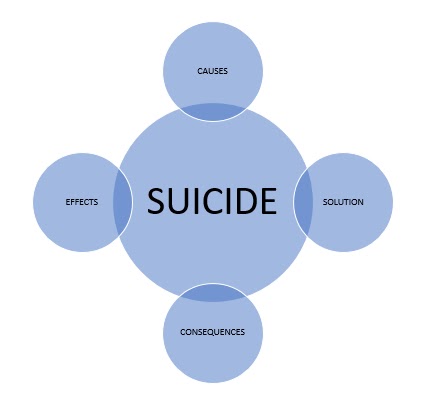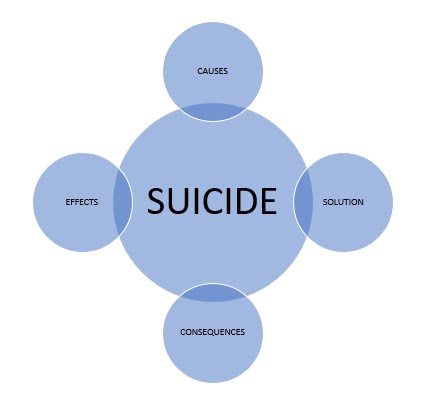Suicide is defined as the act of intentionally causing one’s death. Many factors play a role in influencing whether someone decides to commit suicide. Suicide does not have one universally accepted definition. It can however be defined, simply, as intentional self-inflicted death with evidence that the person intended to die, also known as completed suicide. 18 Suicide occurs when a person ends his/her life. Suicide, by definition, is therefore fatal because, in the end, the result is death. Nearly everyone experiences suicidal thoughts at one point or another throughout their existence. Everyone deals with tough times, but some people have been dealt a tougher hand when it comes to life circumstances, past trauma, mental and/or physical illness, social standing, and the ability to cope with depressive emotions. The recent incidence of suicide in the country is, no doubt, alarming. Most shocking is the fact that younger ones are not even excluded from this worrying trend. Ironically, Nigerians that were once famously labeled ‘happy-go-lucky people’ now find suicide attractive. Nigeria always ranks well in the World Happiness Reports. It ranked 78th in the world and 2nd in Africa on the World Happiness Report for the Year 2016. Curiously, the country dropped to 103rd and 6th position in the 2017 World Happiness report.
A World Health Organisation (WHO)’s suicide ranking, showed that 800,000 people die globally from suicide every year, with 15.1 suicides per 100,000 people annually, Nigeria now ranks the 30th most suicide-prone country out of 183 nations in the world. (The Guardian). With an average of one every 40 seconds according to the World Health Organisation (WHO), suicide is topping the chart as the number one killer. Even if that is a global index painting a general picture, a recent survey shows that more Nigerians have committed suicide in the last few years than in previous times, although many of the deaths are kept away from the public arena. Taboos and the stigma attached to the issue conspire to hush up the incidence of suicides. Yet, it should worry us all that far too many of our citizens are taking their own lives.
Nigeria has also ranked the 10th African country with a higher rate of suicide, leading countries like Togo (26th), Sierra Leone (11th), Angola (19th), Equatorial Guinea (7th), Burkina Faso (22nd), and Cote d’Ivoire (fifth). Coordinator, Suicide Research and Prevention Initiative (SURPIN:2017), Raphael Ogbolu, explained that more than 90 percent of those who died by suicide had depression.
He noted that there was the need to train families, individuals, and religious leaders continuously to close the gap in the treatment of depression. (The Guardian). The study of suicide is instructive from many points of view. It is particularly illuminating in this part of the world since there is no record of any such previous study. Tooth’s (1950) study was limited to his Gold Coast Mental Hospital population and was mainly concerned with the rarity of depressive illness in that
country. Suicide is often committed by people suffering from a mental disease, and for this reason, it can be an index of mental ill-health in a community. Schizophrenia and psychoneurosis, with depressive components, and uncomplicated depression are common causes of suicide, and it is these depressive forms of mental illness that have been reported to be rare in Africans.People are most driven to suicide when they view their current situation as being completely hopeless and feel as if they have no way to change things for the better.
CAUSES OF SUICIDE IN NIGERIA
A host of factors have been attributed to the growing suicide trend in the country. Listed below are some of the most common causes of suicide throughout the world.
WHAT ARE THE CAUSES OF SUICIDE IN NIGERIA







